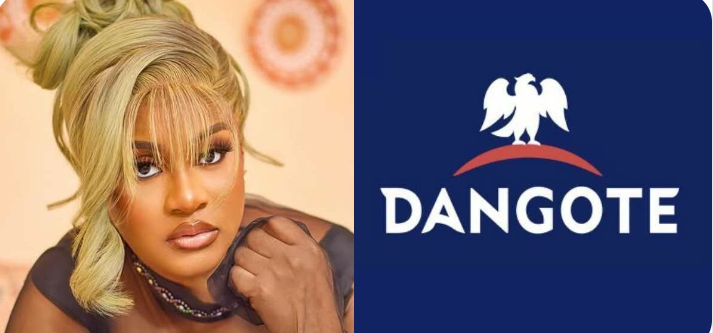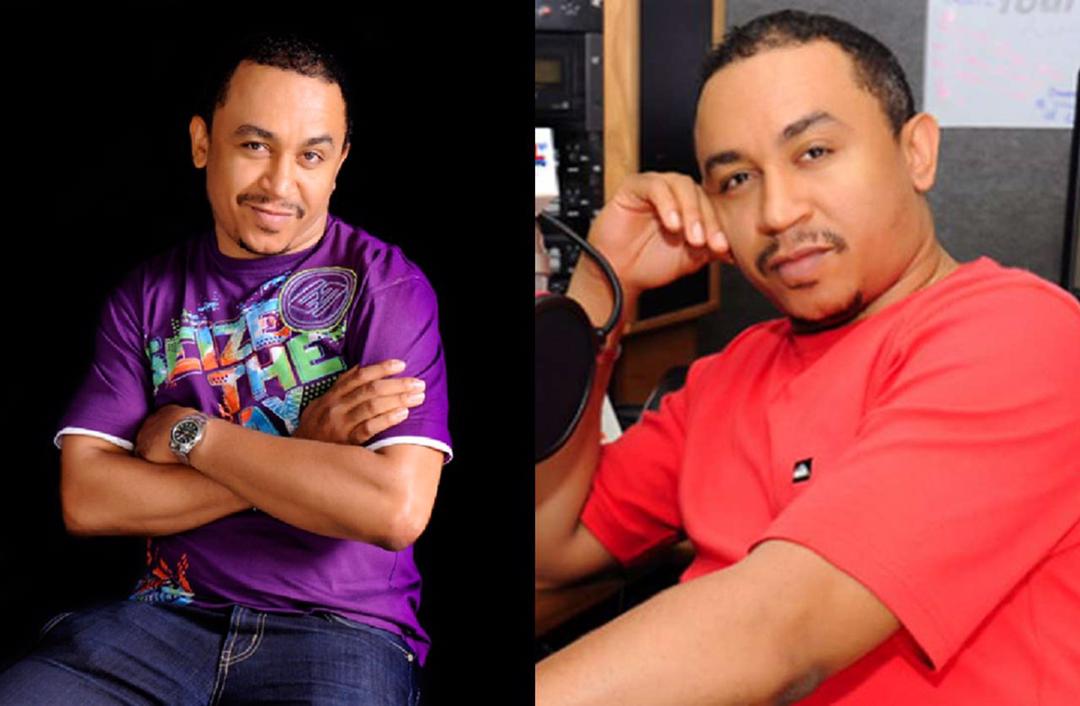
Phyna’s Fiery Showdown with Dangote Group: Reality TV Star’s Public Battle for Justice Over Sister’s Tragic Accident Shakes Nigeria

The unfolding drama between Big Brother Naija Level Up winner Ijeoma Otabor, popularly known as Phyna, and the Dangote Group has rapidly evolved from a personal tragedy into a nationwide talking point, capturing public emotions and igniting online debates about corporate accountability, road safety, and the power of celebrity influence in Nigeria’s justice system. It began with a heart-wrenching incident that would shatter any family’s peace—Phyna’s sister was involved in a devastating accident with a truck reportedly belonging to the Dangote Group. The collision left her with catastrophic injuries, and the aftermath has been anything but quiet. As the injured woman battles for her life in hospital, Phyna has taken the fight for justice far beyond private discussions and legal correspondence, bringing the matter directly into the public eye through her social media platforms. In a blistering public statement, Phyna accused the Dangote Group of attempting to manipulate the accident scene, claiming that police, allegedly acting under instructions from the company, tampered with the vehicle by removing its license plate number shortly after the crash. Her words were as fiery as they were uncompromising: she reminded the billionaire industrialist Aliko Dangote that while his wealth might be unmatched, “he isn’t God.” That message, sharp and defiant, instantly went viral, resonating with countless Nigerians who feel that the wealthy and powerful are often shielded from consequences in a way that ordinary citizens are not. The public response was immediate—hashtags calling for justice began trending, online discussions about corporate road safety surged, and a growing chorus of voices demanded transparency in the investigation.
When the Dangote Group finally responded, issuing a press statement pledging “unwavering commitment” to the victim’s well-being, the tone seemed conciliatory on the surface. The statement promised full medical care for Phyna’s sister, appropriate compensation, and extended wishes for her “quick recovery.” The words appeared polished and carefully chosen, a public relations effort aimed at containing a rapidly escalating situation. But for Phyna, this was far from satisfactory. She read the statement and saw not compassion, but irony—a cold choice of language that failed to acknowledge the irreversible reality her sister now faced. In her follow-up reaction, she did not hold back. Quoting the company’s own words back at them, she demanded to know how a quick recovery was even possible when her sister had already lost her leg. “Appropriate compensation? Quick recovery from an already amputated leg? What necessary speed are you taking right now? Let’s not forget the bike man, who is also in critical condition,” she wrote, once again sparking waves of online sympathy and outrage. Her mention of the bike rider, an often-forgotten figure in accident cases where public attention gravitates toward the most famous victim, reminded Nigerians that this tragedy had multiple human costs. It wasn’t just a story of celebrity pain—it was a broader commentary on how accidents involving heavy-duty trucks frequently leave devastation in their wake, especially on Nigeria’s often-chaotic roads.
The Dangote Group’s response, while attempting to appear humane, has been dissected line-by-line on social media, with many commentators noting that the company avoided specific admissions of fault or detailed explanations about the alleged removal of the plate number. Questions continue to swirl: Who exactly gave the order to alter the truck’s condition at the scene? Was this a deliberate attempt to evade responsibility, or a standard procedure gone wrong? And perhaps most critically—will the promises of compensation and care materialise in a way that satisfies the victims’ families and the watching public? For now, Phyna’s voice has become the rallying cry for those who believe corporate power in Nigeria too often tramples on the rights of ordinary citizens. Her celebrity status gives her a platform that many victims never have, and she seems determined to use it, even if it means clashing directly with one of the country’s most powerful business empires. Her repeated emphasis that “wealth is not God” has struck a chord with a population weary of stories where justice appears to bow to influence. In the court of public opinion, Phyna’s outspokenness is both admired and criticised—some see her as a fearless advocate for her family and others as a public figure using her fame to pressure a corporate entity into an emotional rather than legal resolution.
Meanwhile, the physical reality of the situation remains grim. Reports from the hospital indicate that Phyna’s sister is still undergoing treatment after the amputation, her recovery process expected to be long and painful. The bike rider remains in a critical condition, with medical teams fighting to stabilise him. Each passing day adds weight to the urgency of resolving not just the question of financial compensation, but also the need for accountability. In the Nigerian public space, accidents involving corporate-owned trucks are far from rare. Over the years, citizens have repeatedly called for stricter enforcement of road safety laws, better vehicle maintenance, and more accountability from the companies whose fleets crisscross the country’s highways and urban roads. Many see this incident as a litmus test for whether a high-profile case can lead to tangible change in how such matters are handled. If Dangote Group, with its vast resources and influence, can be compelled to act swiftly and transparently in this instance, perhaps it could set a precedent for similar cases in the future.
In the days following the initial statements, various civil society groups, road safety advocates, and even legal commentators have weighed in on the matter. Some have called for the Federal Road Safety Corps to launch an independent investigation into the incident, including the allegation of tampering with the truck at the scene. Others have suggested that the Lagos State government—or the state where the accident occurred—should step in to ensure the matter is not quietly resolved behind closed doors. For many, the case is not just about one celebrity’s sister but about drawing a line in the sand against what they perceive as a culture of impunity among the elite. As emotions run high, the story shows no signs of fading from the headlines. With every new Instagram post from Phyna, every fresh comment from the Dangote Group, and every update from the hospital, Nigerians remain glued to their screens, debating whether this public confrontation will lead to real justice or simply become another news cycle casualty.
In the end, the human dimension of this tragedy looms largest. Beyond the hashtags, press statements, and viral videos are two lives—Phyna’s sister and the injured bike rider—forever altered by a single moment on the road. The emotional toll on their families, the medical challenges ahead, and the financial burden of long-term rehabilitation are realities that no corporate pledge or social media outrage can erase. And yet, as Phyna continues to speak out, she keeps the pressure alive, ensuring that the world does not look away too soon. Whether the Dangote Group will match its words with decisive action remains to be seen, but one thing is certain—this battle between a reality TV star and one of Africa’s largest conglomerates has become more than just a personal fight. It has morphed into a national conversation about justice, accountability, and the limits of power in the face of public outrage.


